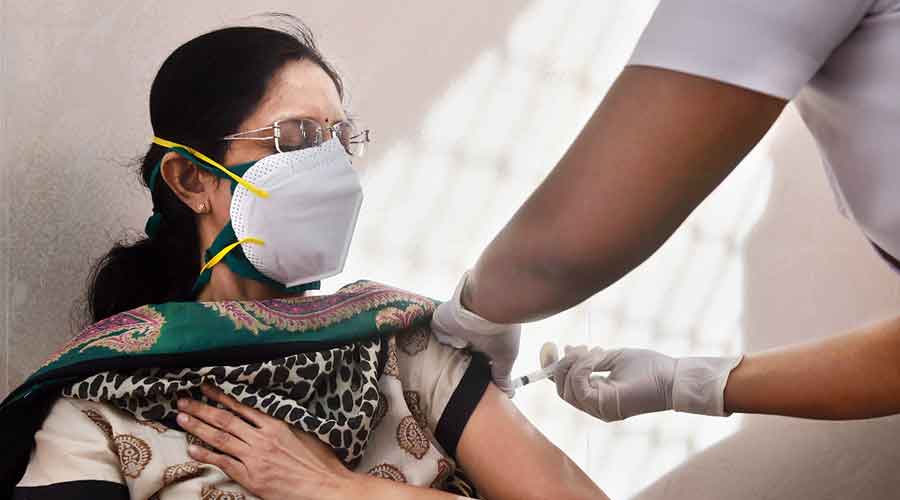Eligible people can seek Covid-19 vaccination through online pre-registration, walk-in spot registration or state-organised bulk inoculation, the Union health ministry said on Friday, outlining three routes to open during the campaign’s phase starting on March 1.
The three routes are intended to simplify the registration process as the vaccination campaign expands to inoculate everyone aged 60 years or older and those 45 years or older with chronic health disorders. Until now, vaccines were available only to healthcare and frontline workers.
Potential beneficiaries can self-register in advance by downloading the Co-Win 2.0 app that will list all government and private hospitals offering the vaccine with the available date and time schedules. The beneficiaries can choose the vaccination centre and book appointments.
Those unable to self-register in advance could walk into identified vaccination centres and get themselves registered on site and get vaccinated.
All beneficiaries would need to carry Aadhaar cards or voter photo identity cards, or other photo identity cards approved for the registration.
People between the ages of 45 and 59 years eligible for the vaccine because of comorbidities would need to carry a certificate from a registered medical practitioner specifying their health disorder.
The health ministry, in a meeting with state officials on Friday, said states could also organise “facilitated cohort registration” under which local healthcare workers or auxiliary nurse midwives, women’s self-help groups or panchayati raj officials could mobilise groups of people for vaccinations.
The Centre had said earlier this week that the campaign would be conducted through 10,000 government hospitals and nearly 20,000 private hospitals. The vaccines would be free of cost in government hospitals, but those who opt for private facilities would need to pay a pre-fixed charge.
The health ministry is yet to announce the cost of the vaccines in private hospitals. The government has also not specified yet whether beneficiaries would have the option to choose between the two vaccines currently used in the campaign — Covishield, the AstraZeneca-Oxford vaccine, and Covaxin, the homegrown vaccine.
The health ministry said private hospitals empanelled to provide services under the central government health scheme or the national health insurance scheme called the Pradhan Mantri Jan Aarogya Yojana or state schemes could offer vaccines. Government vaccination centres would include medical college hospitals, district hospitals, community health centres, primary health centres and health-and-wellness centres.
But each vaccination centre would have to maintain refrigeration equipment for the cold chain required by vaccines, a team of vaccinators and associated staff, and adequate facilities to manage any adverse events following immunisation.
The campaign has vaccinated 6.6 million healthcare workers with first doses, 2.2 million healthcare workers with second doses, and nearly 5 million frontline workers with first doses. Healthcare and frontline workers left out could continue to receive vaccines in the coming phase.










